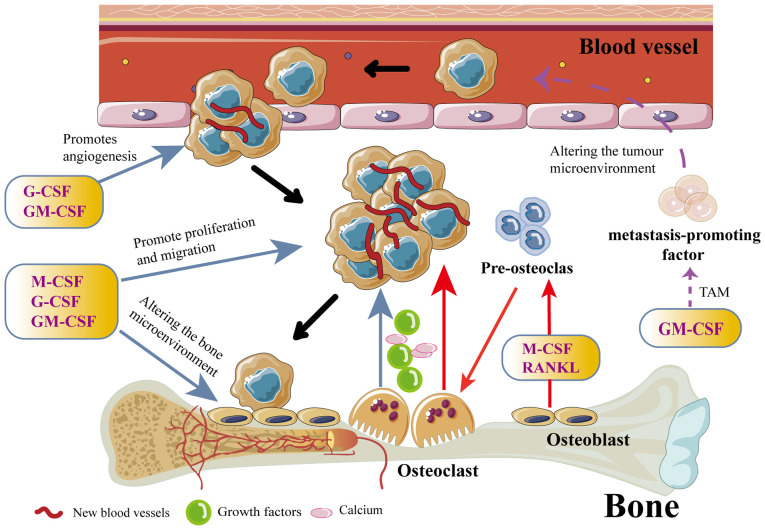Figure 3.
CSF influences the course of cancer development through paracrine secretion and promotes the occurrence of bone metastases. First, CSF promotes angiogenesis, which is the main cause of the transformation of intraepithelial neoplasia into early-stage cancer. Second, CSF can also increase the invasiveness of cancer cells and accelerate their extravasation. Finally, CSF can lead to the development of osteolytic bone metastases by increasing osteoclast activity. Activated osteoclasts can release large amounts of growth factors and Ca from the bone matrix, which increases cancer cell proliferation, creating a vicious circle. CSF, colony-stimulating factor; G-CSF, granulocyte-CSF; M-CSF, macrophage-CSF; GM-CSF, granulocyte-macrophage CSF; TAM, tumor-associated macrophage; RANKL, NF-κB ligand receptor-activating factors.

